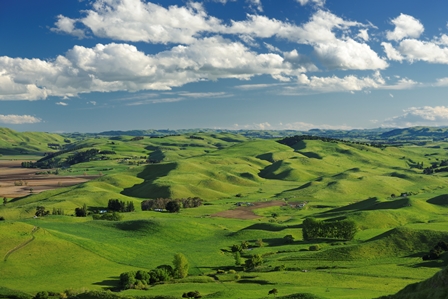Arresting the widespread decline in soil quality is the goal of a new regional soil partnership formed by 17 Pacific countries.
The New Zealand launch of the Pacific Soil Partnership, part of the United Nation’s Food and Agriculture Organization (FAO) Global Soils Partnership (GSP), was held at Te Papa today.
“Soil is essential to life on earth, and it’s particularly important to New Zealand given our land-based industries account for about 17% of our GDP,” says Dr Alison Collins (Director of the National Land Resource Centre/Portfolio Leader at Landcare Research).
“In New Zealand, we realise that good soil management is critical to retain land use flexibility, realise enduring economic value and limit impacts on other natural resources such as our freshwater quality. A range of research projects is being carried out that will contribute to assessing our knowledge and capability for ensuring this vital resource continues to provide for future generations.”
Massey University Associate Professor Marta Camps, New Zealand’s representative on the Inter-Governmental Technical Panel on Soils (ITPS) says the key to improving soils is encompassed in the Global Soil Partnership’s five ‘plans of action’:
- Promote sustainable management of soil resources;
- Encourage investment, technical cooperation, policy, education awareness and extension in soils;
- Promote targeted soil research and development focusing on identified gaps and priorities;
- Enhance the quantity and quality of soil data and information; and
- Support harmonisation of methods, measurements and indicators for sustainable soil management, with a national validation that takes into account the differences of production systems and ecosystems.
The FAO has tasked the Secretariat of the Pacific Community, CSIRO (Australia) and Landcare Research here in New Zealand with establishing the Pacific Soil Partnership. The Pacific region includes 17 member countries (www.fao.org/asiapacific/rap/member-countries/en).




